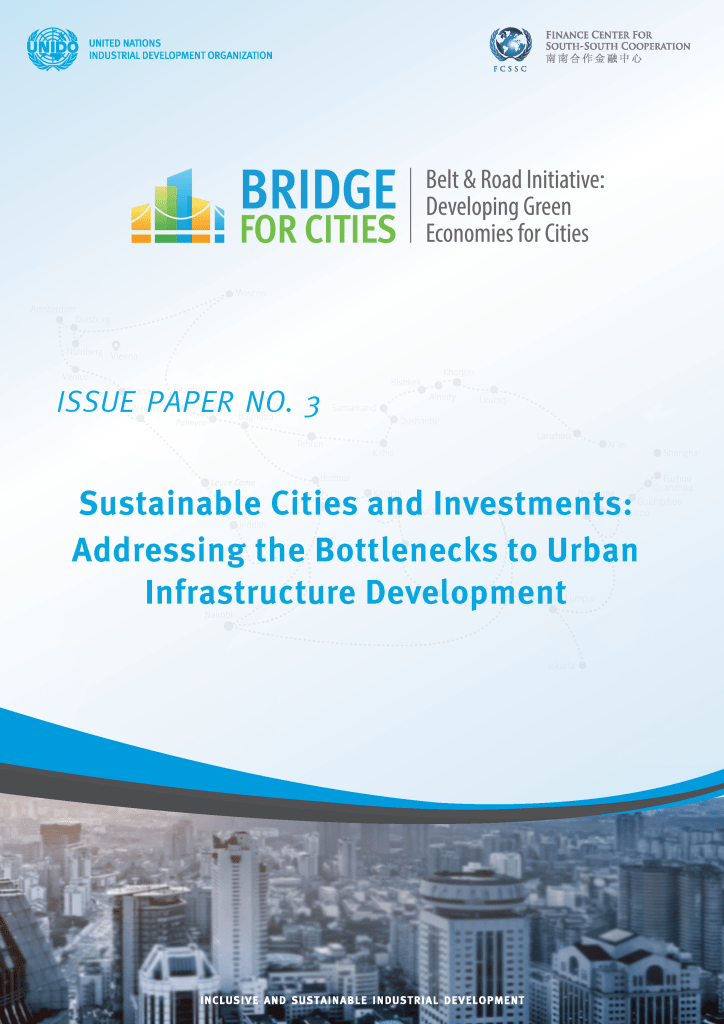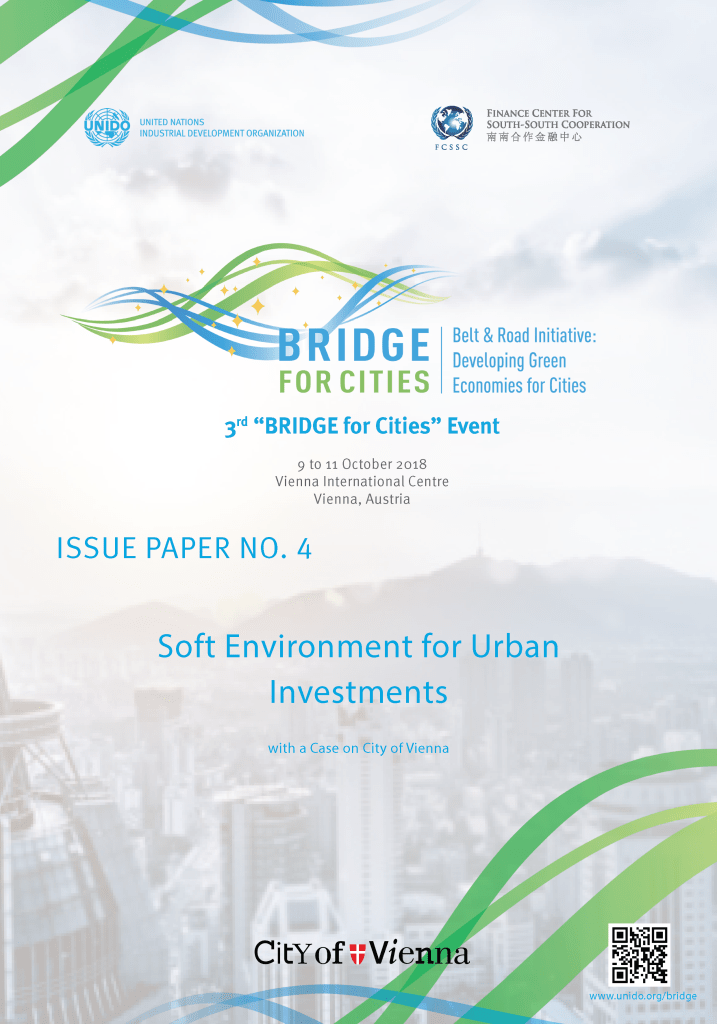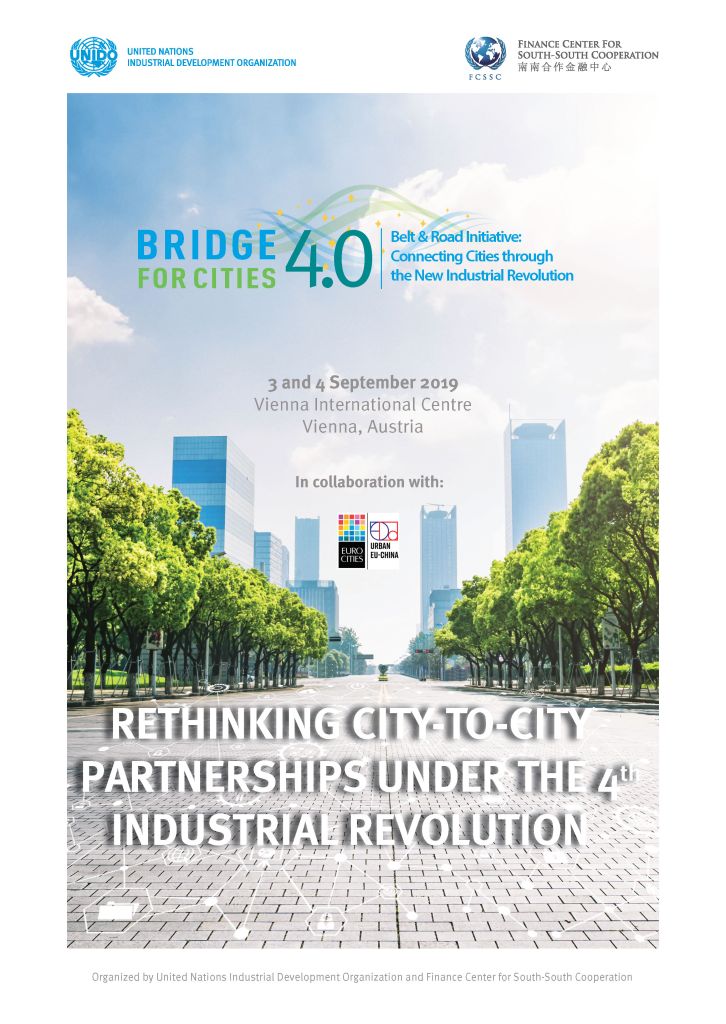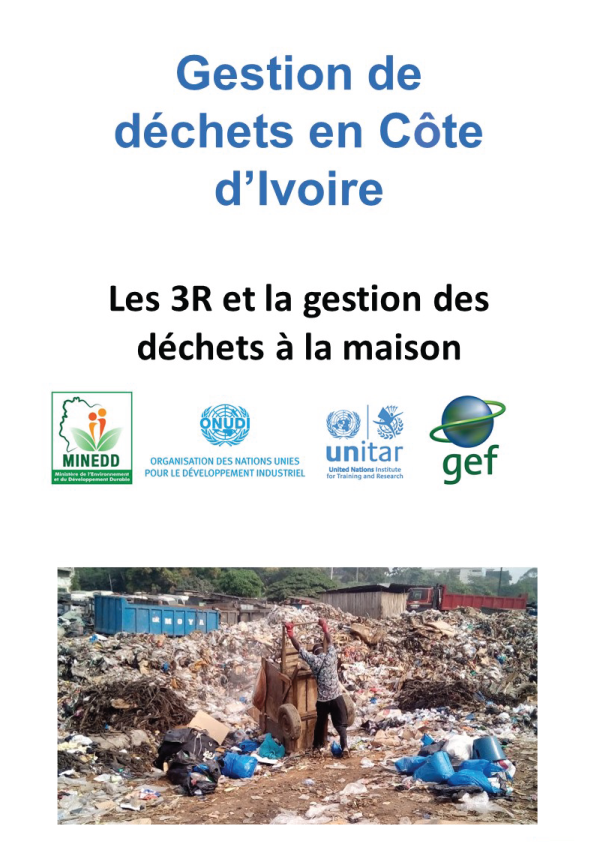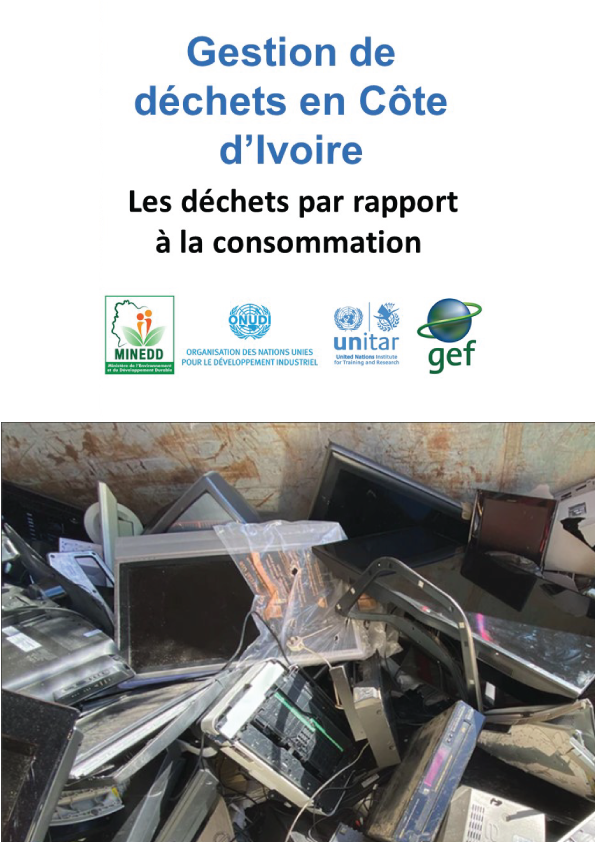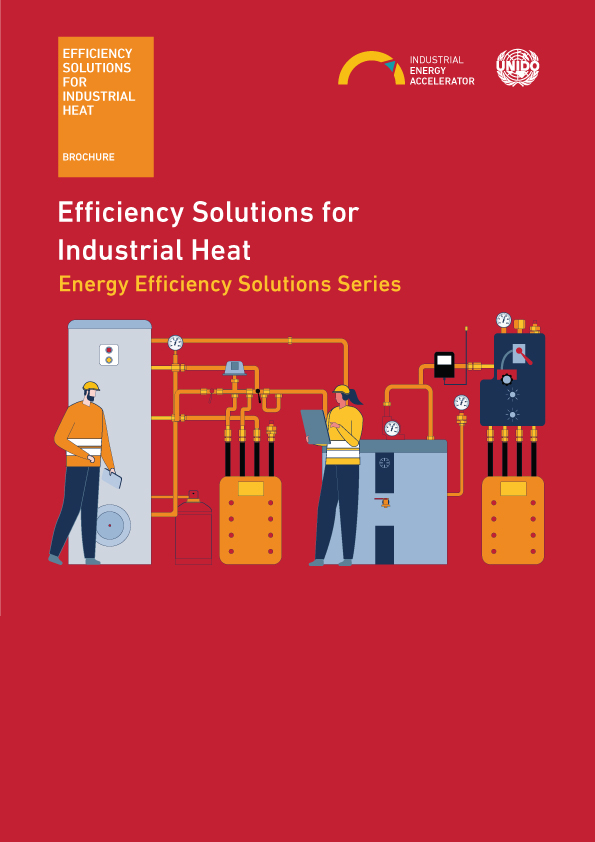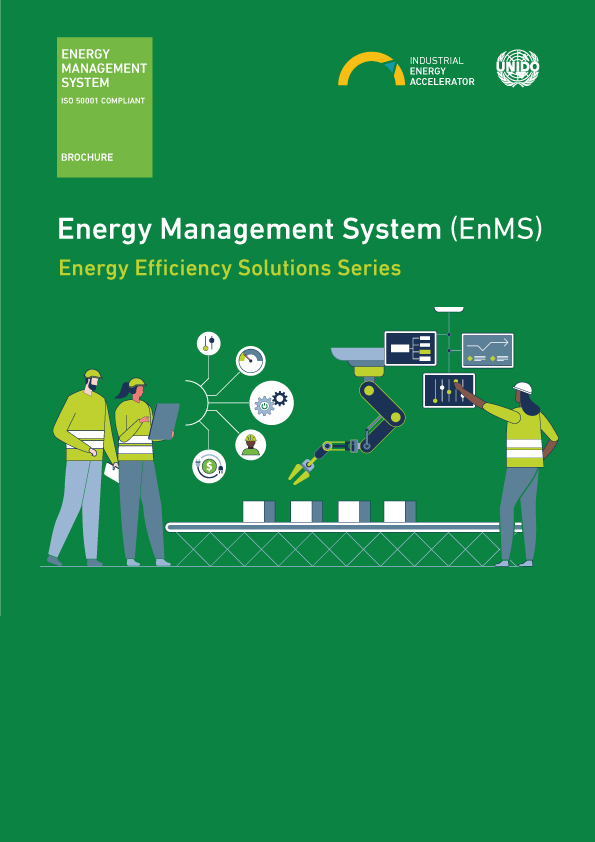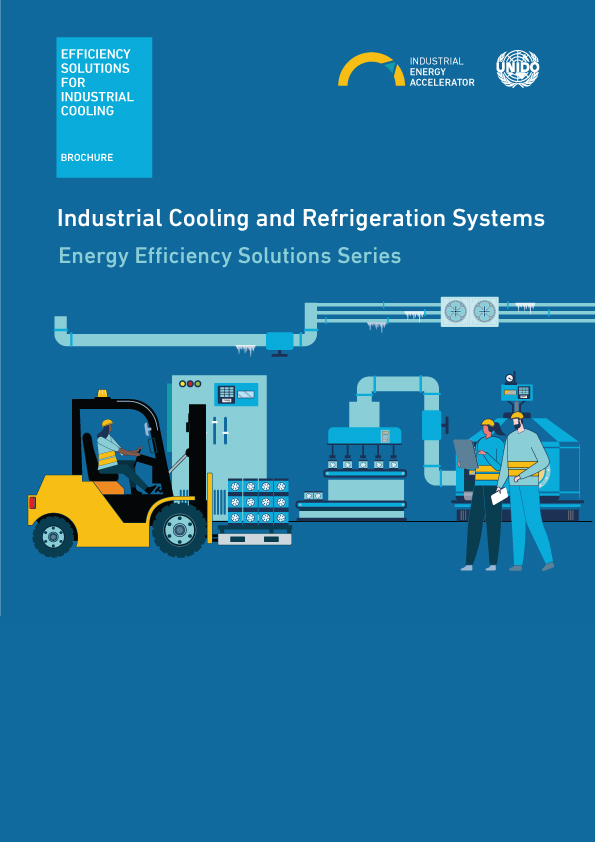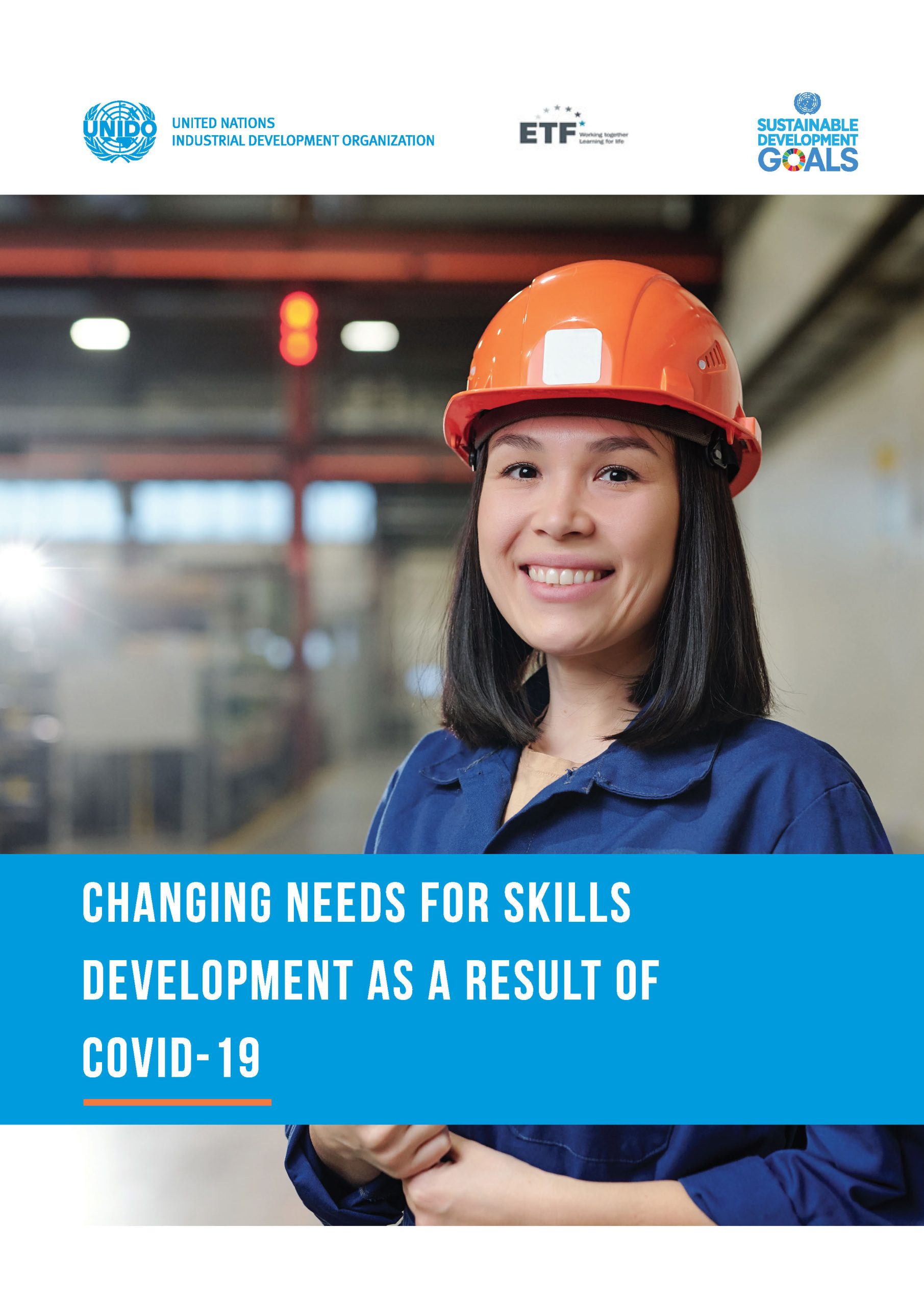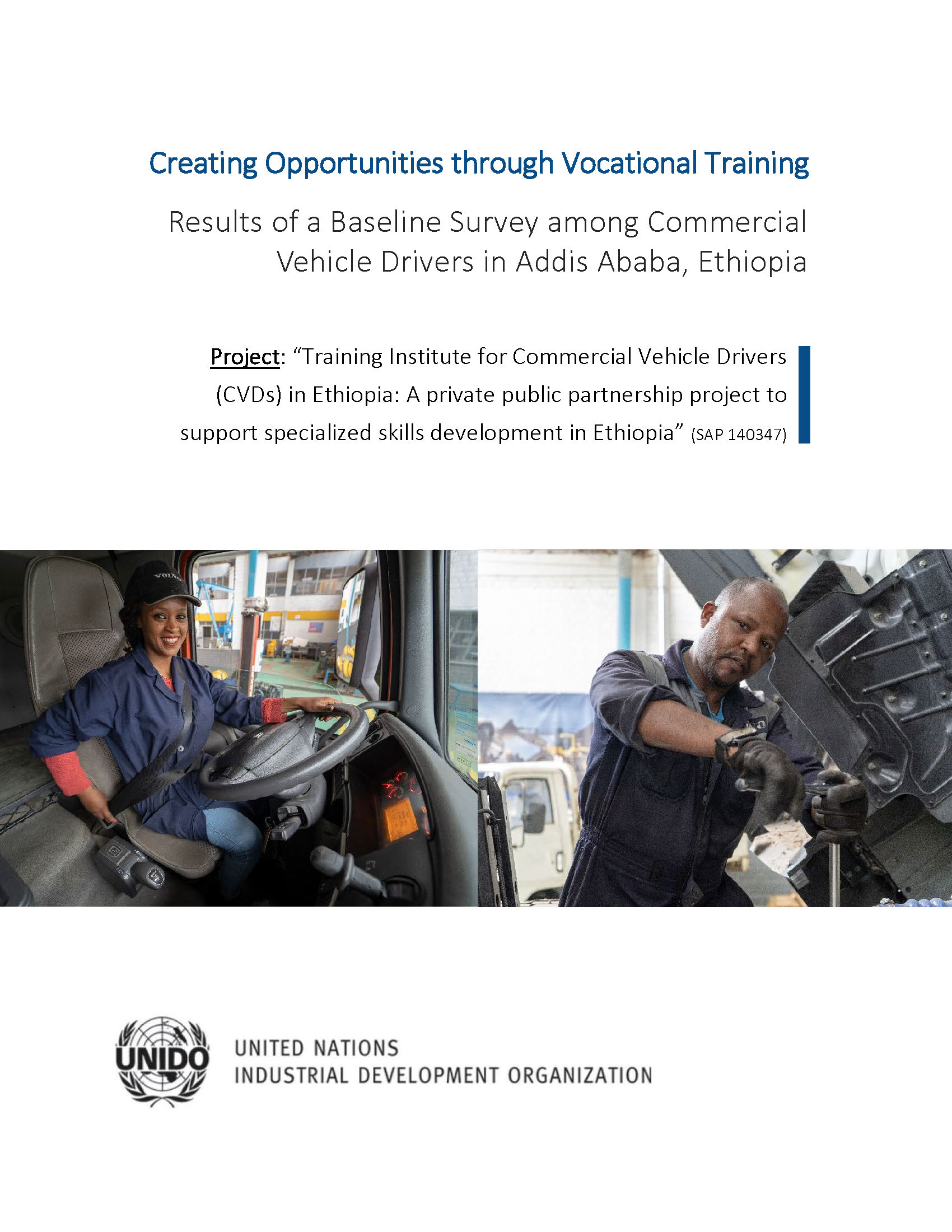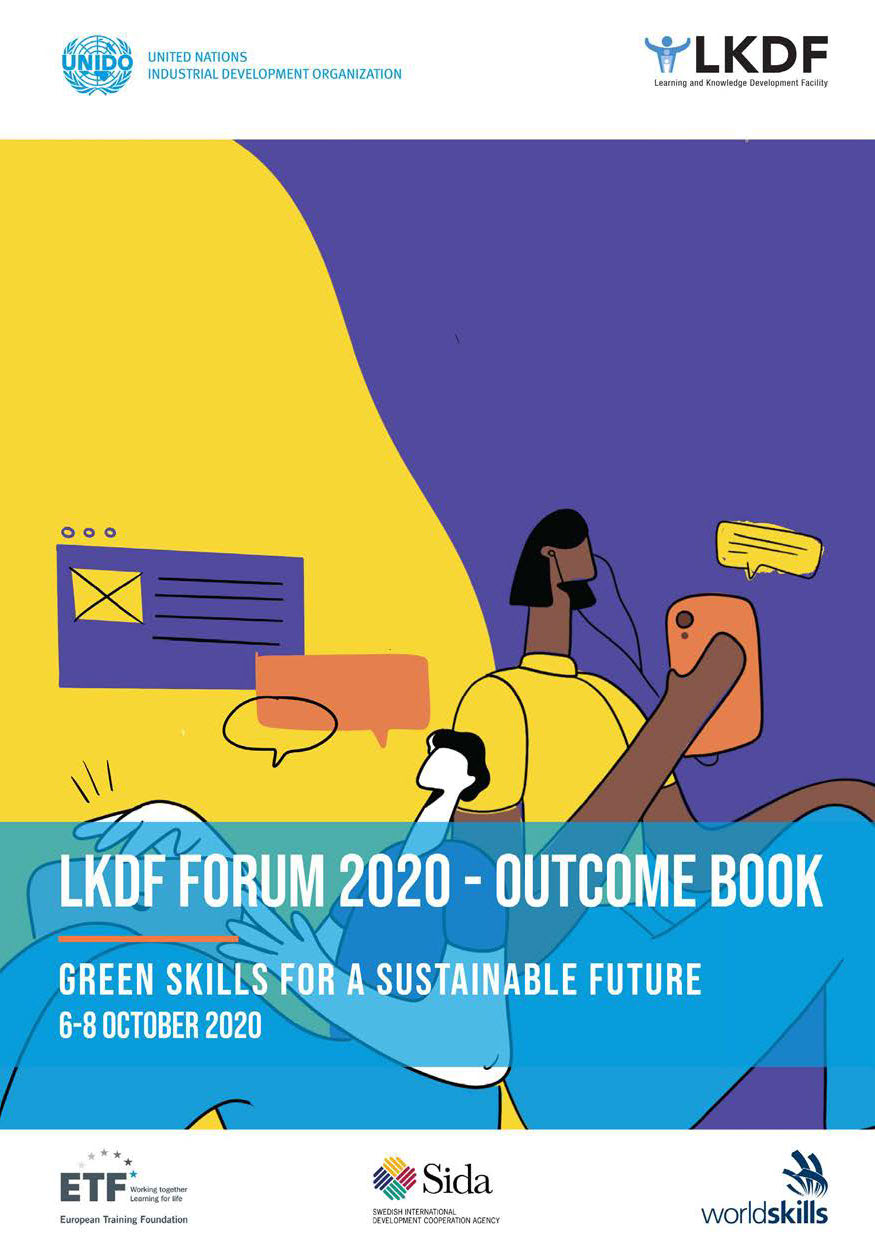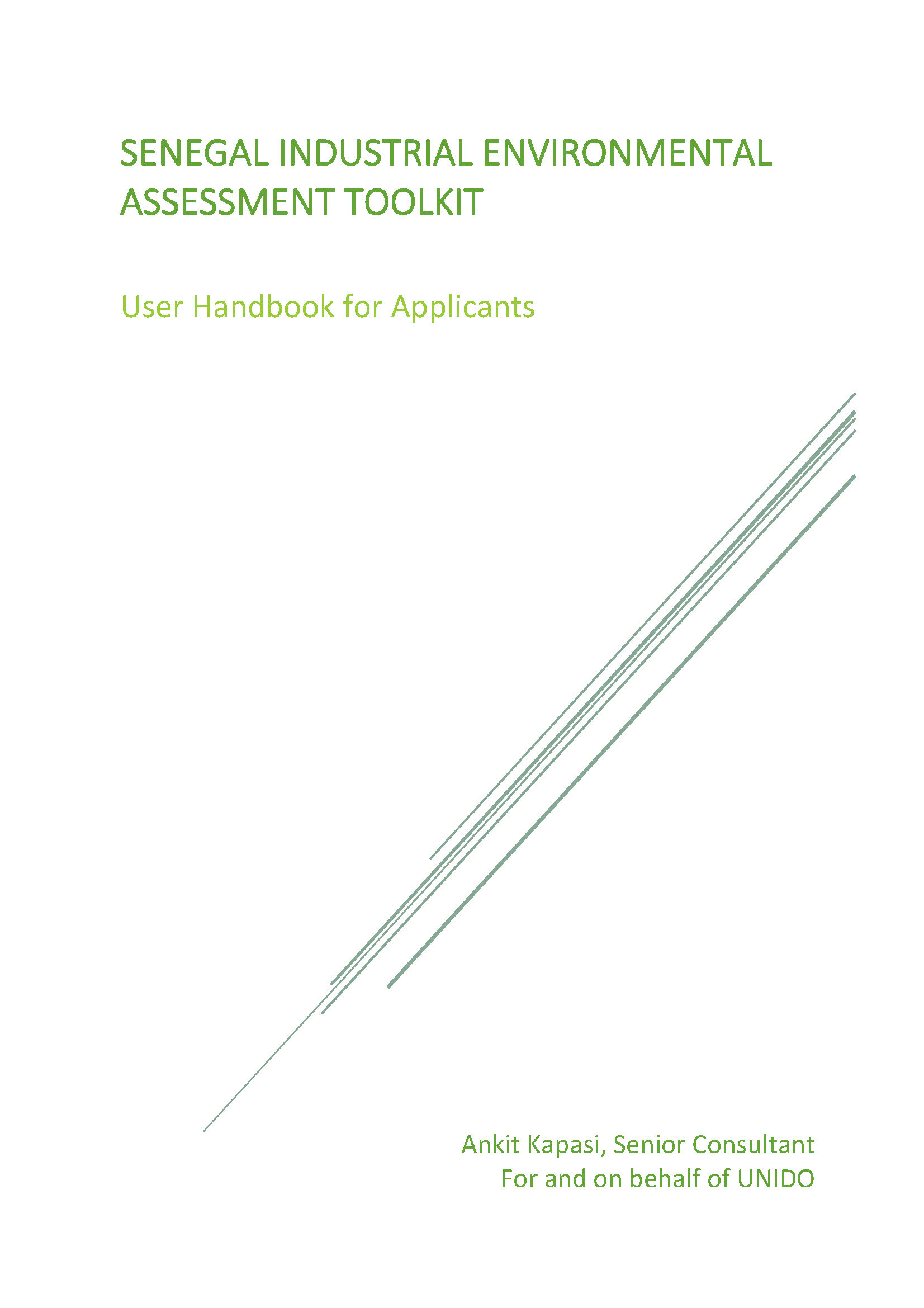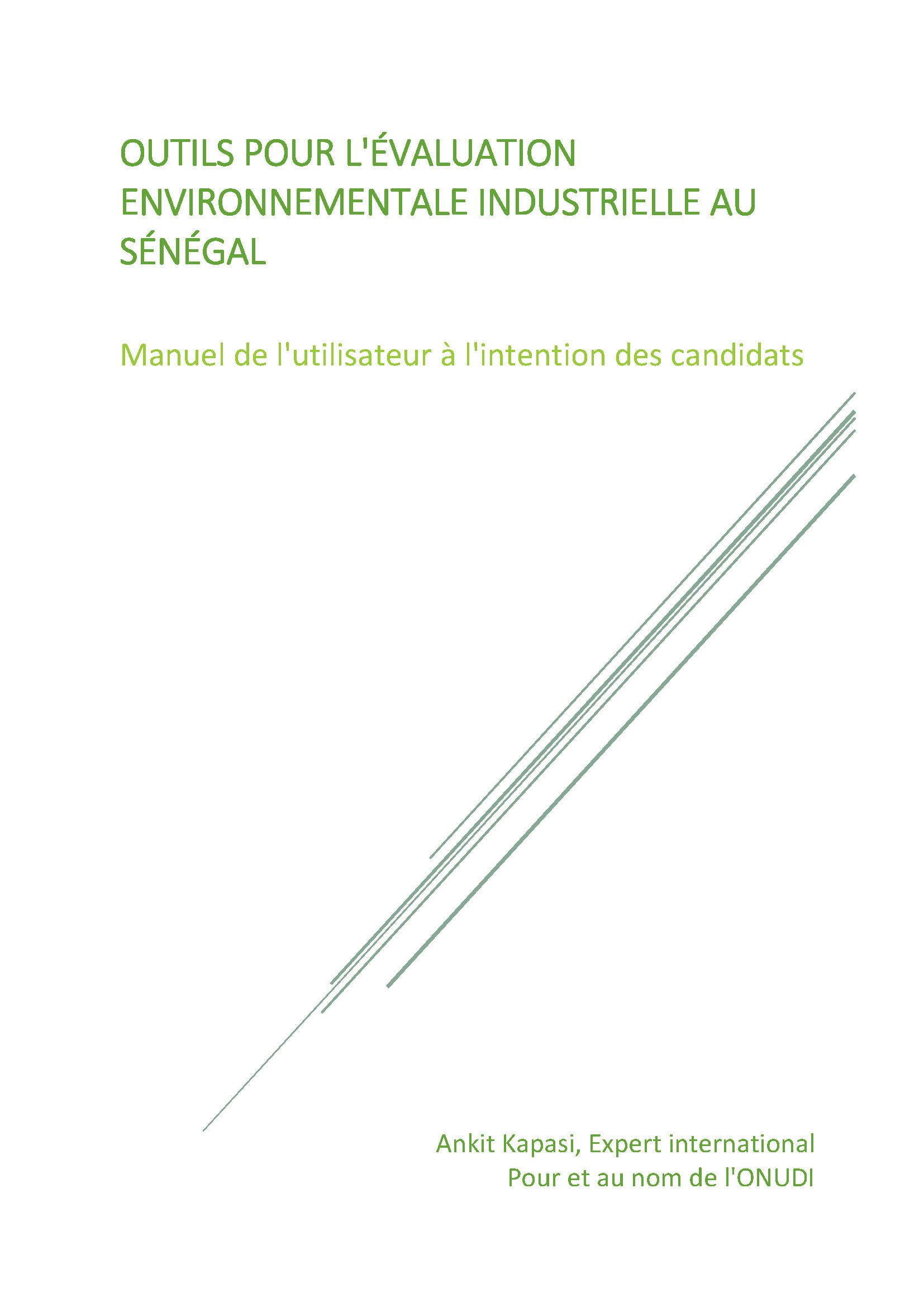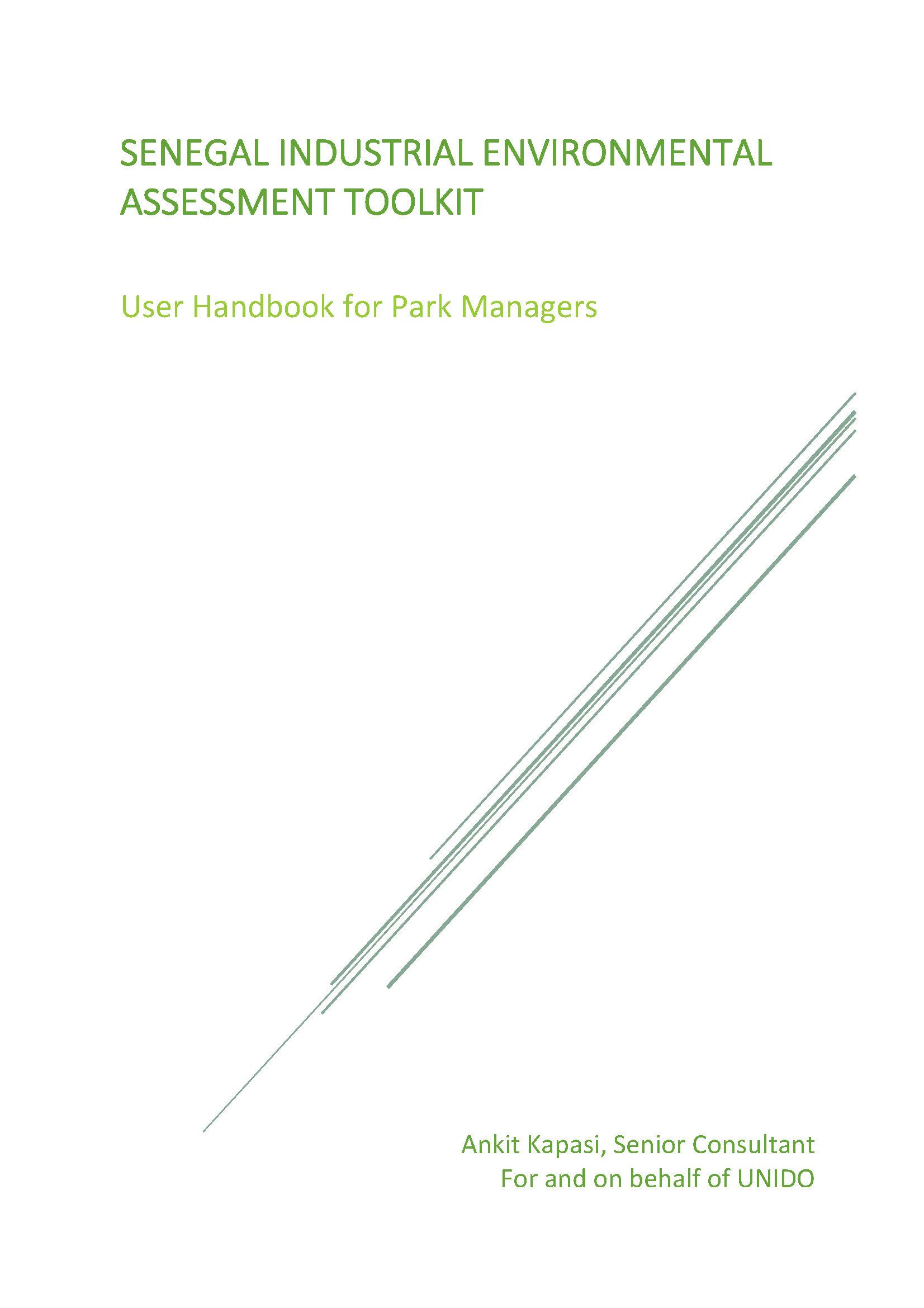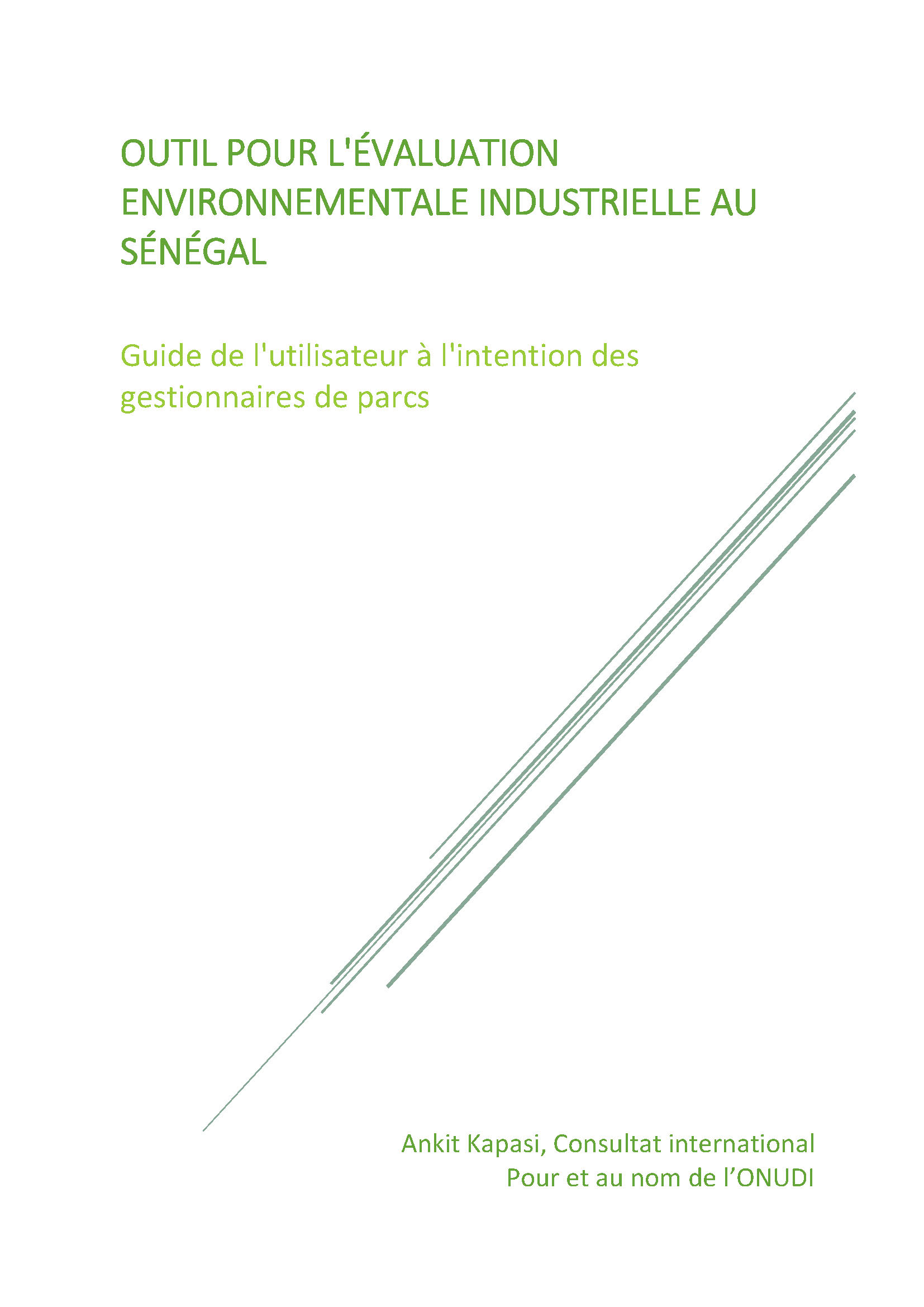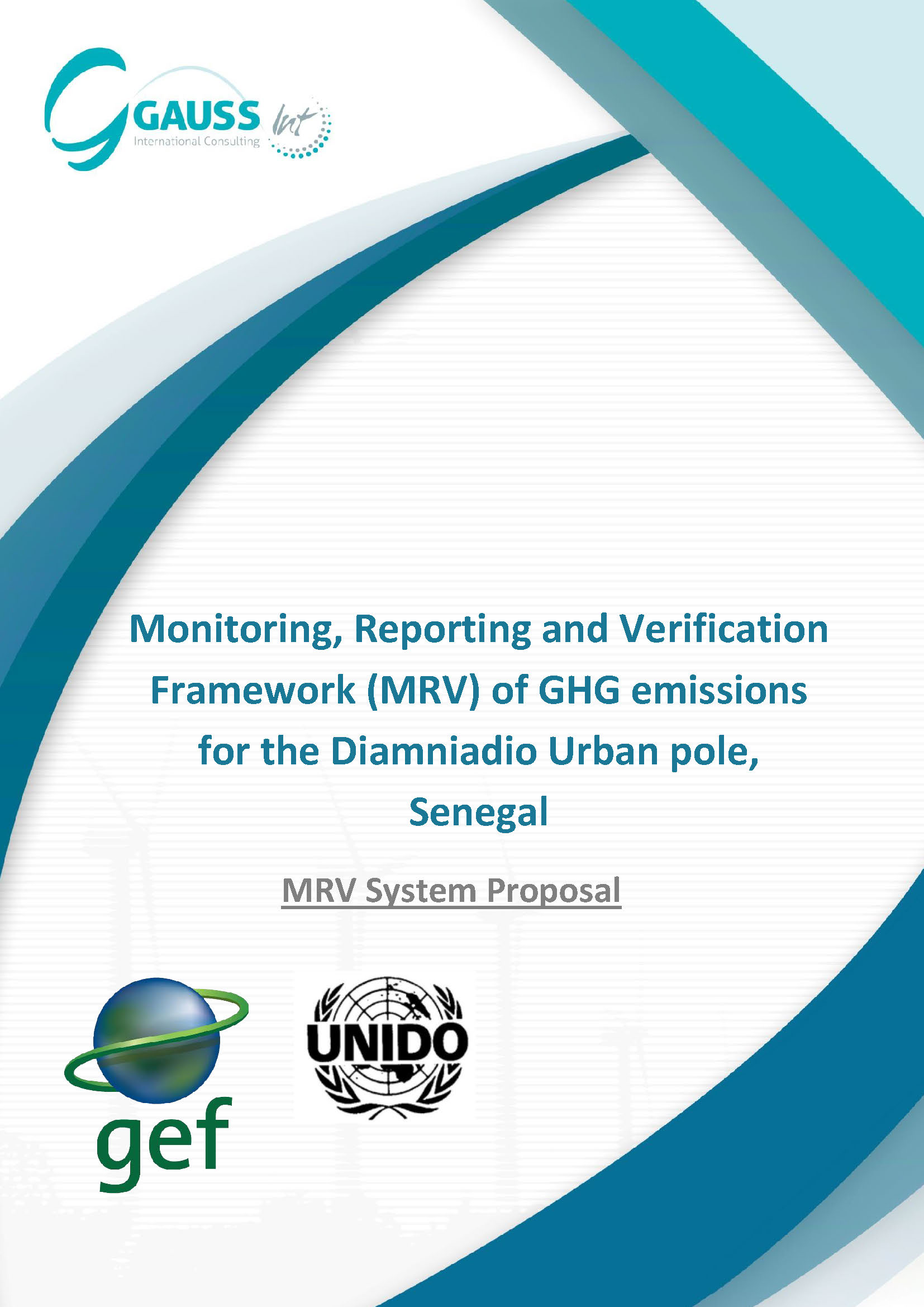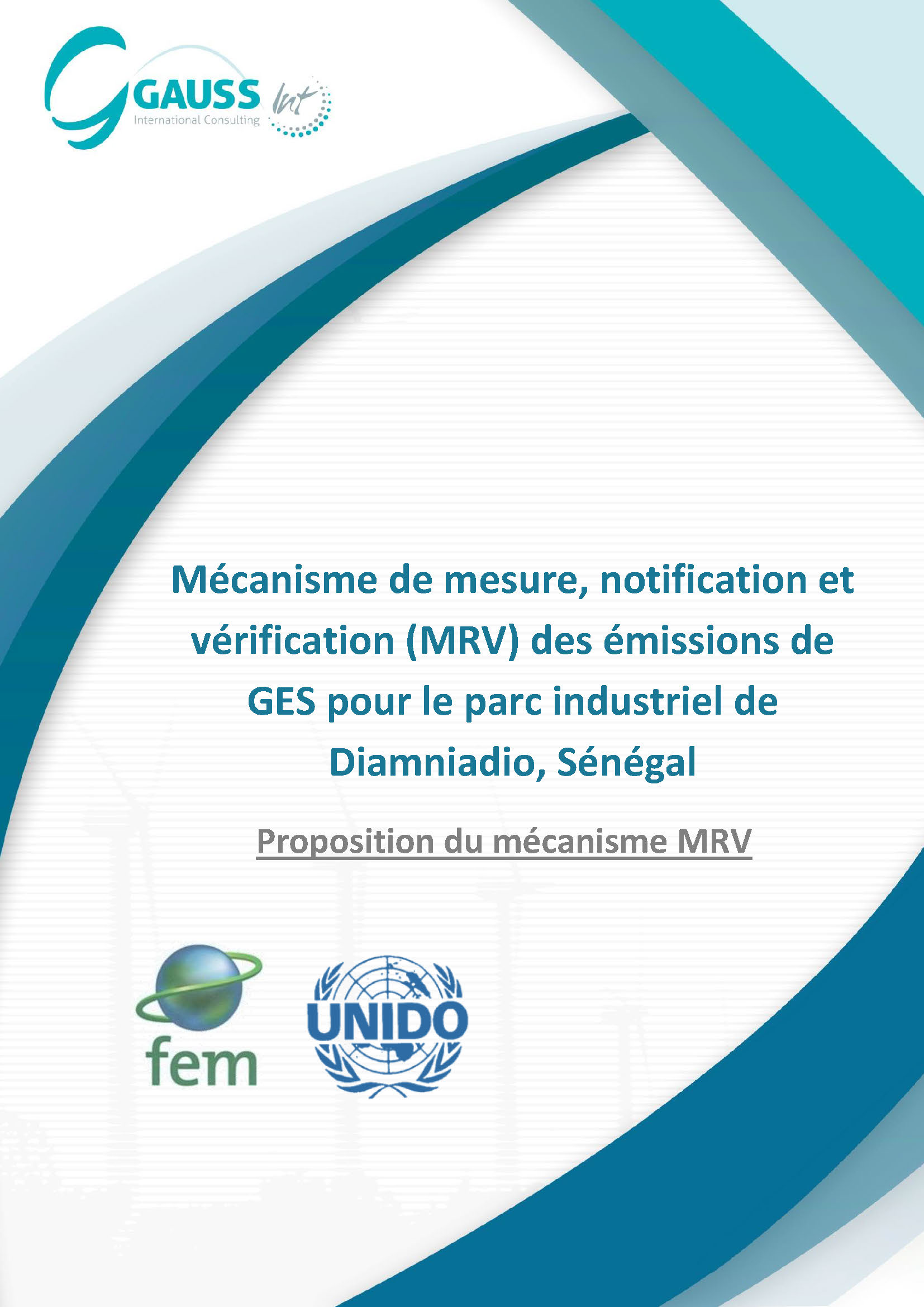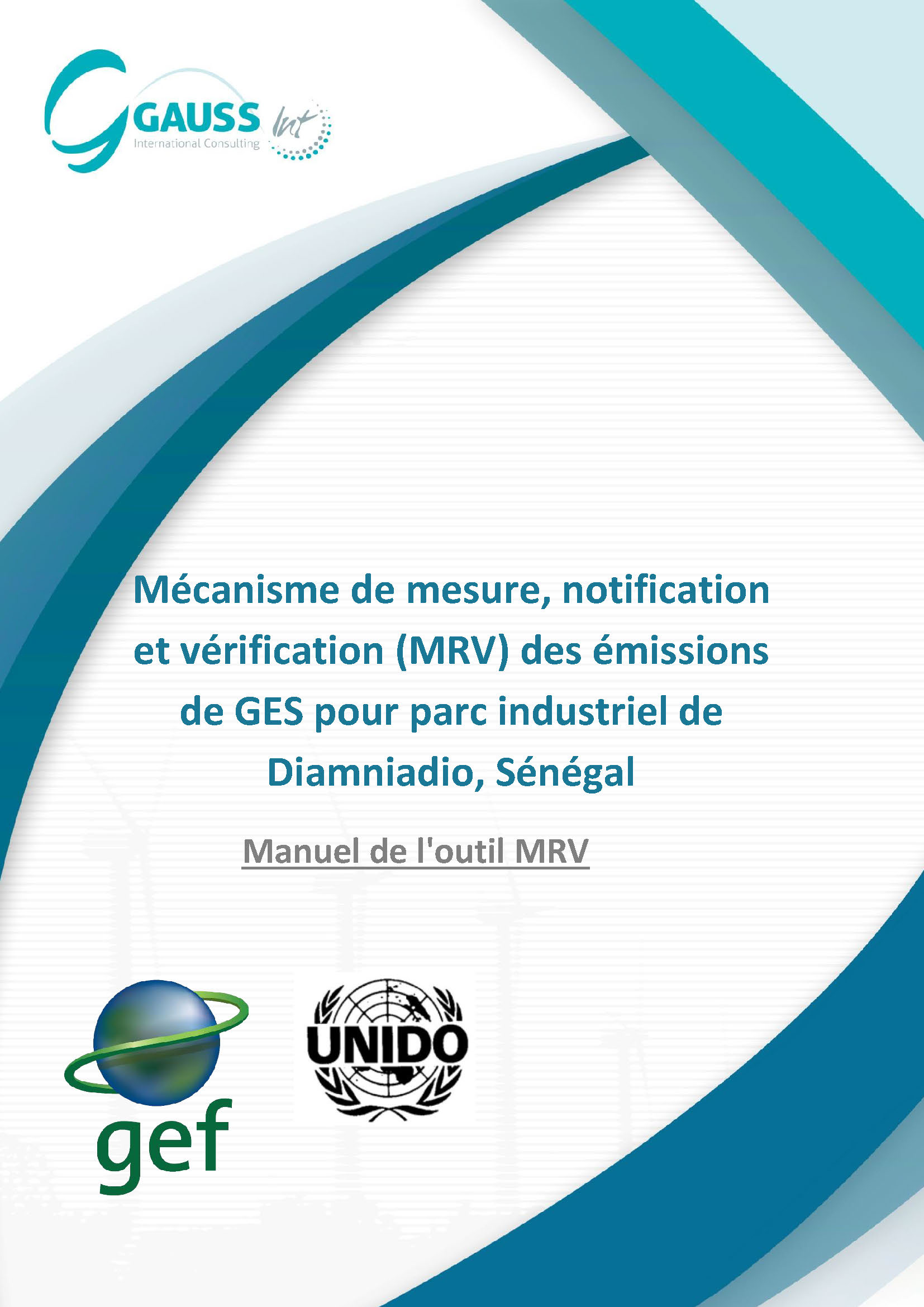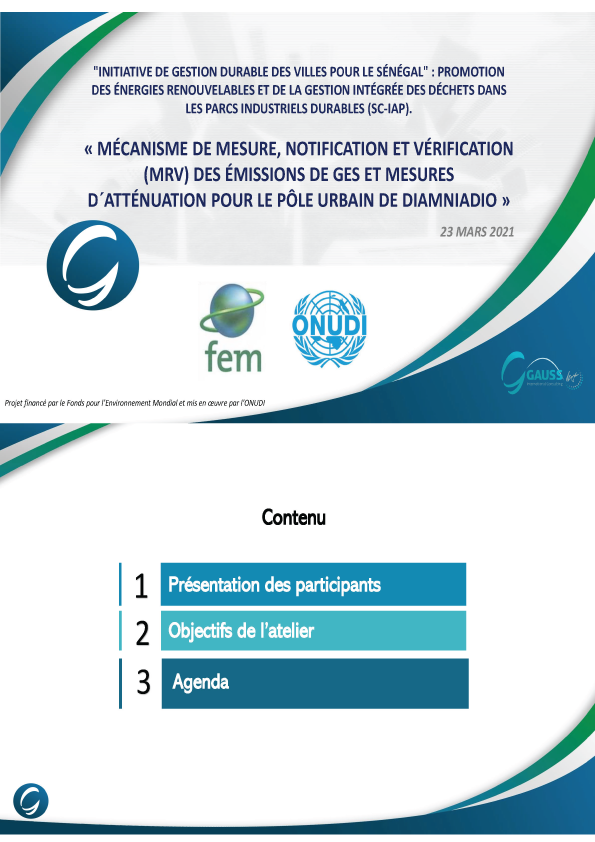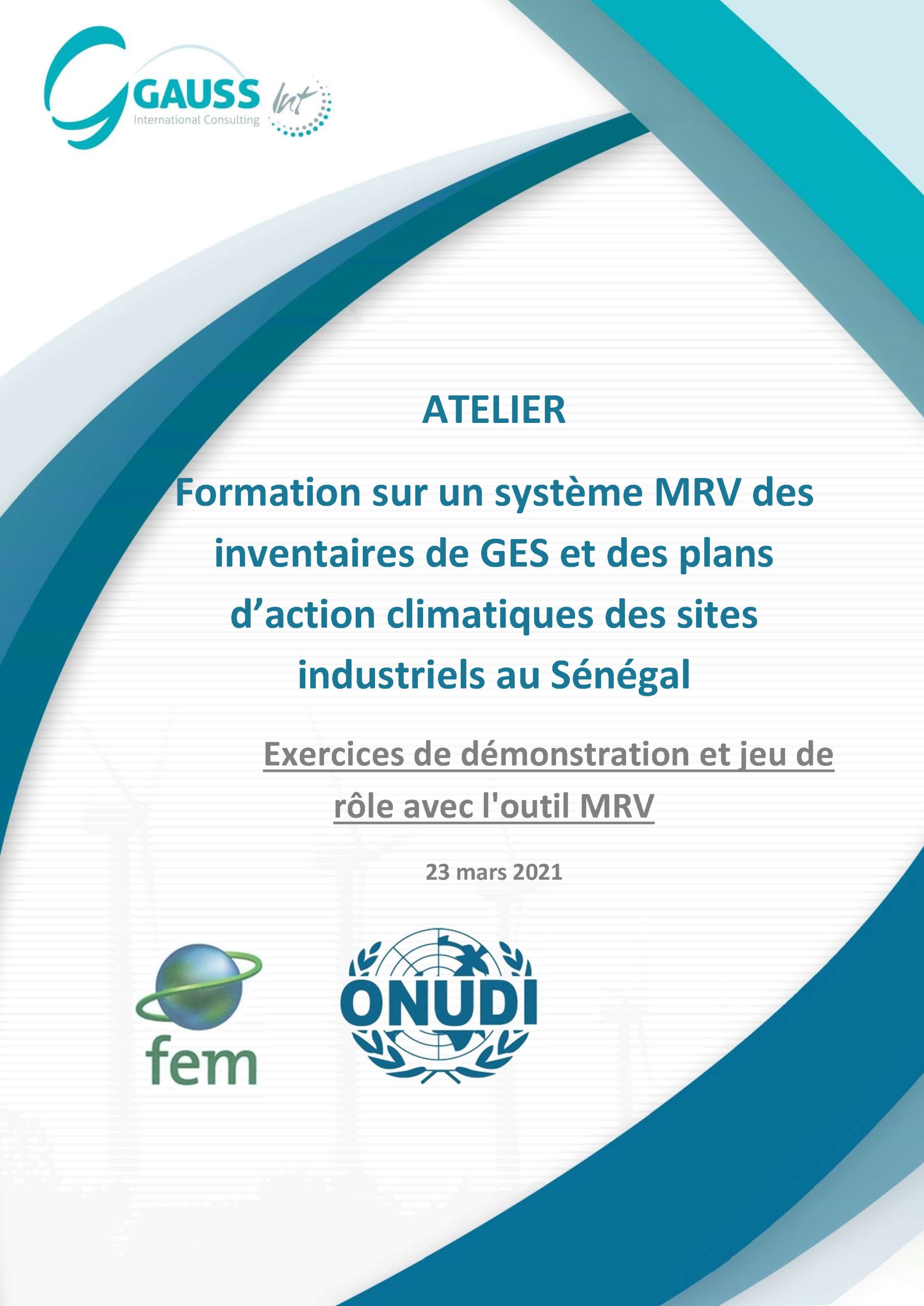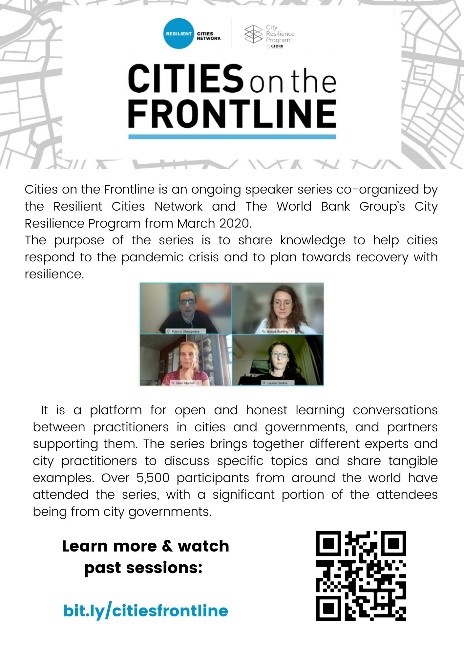PUBLICATIONS
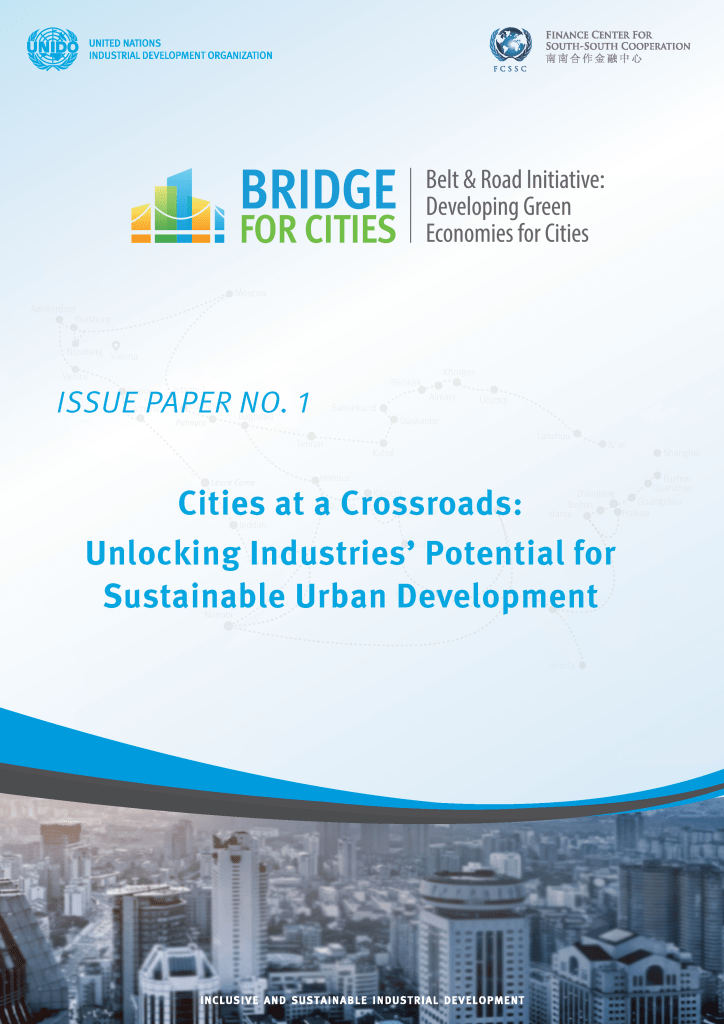
ISSUE PAPER NO. 1
Cities at a Crossroads: Unlocking Industries’ Potential for Sustainable Urban Development

ISSUE PAPER NO. 2
Sustainable City Indexing: Towards the Creation of an Assessment Framework for Inclusive and Sustainable Urban-Industrial Development
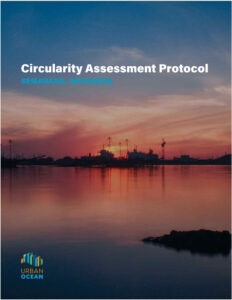
Urban Ocean Circularity Assessment Protocol (CAP) Report | Semarang, Indonesia
Between October and November 2020, a team from the Initiatives for Regional Development and Environmental Management (IRDEM) at Diponegoro University, with guidance and support from the Circularity Informatics Lab, conducted fieldwork in the city of Semarang, Indonesia. The CAP was conducted with support from the city’s local government, Resilience Officers, and the larger Urban Ocean team.

Urban Ocean Circularity Assessment Protocol (CAP) Report | Can Tho, Vietnam
Between October 2020 and January 2021, a team from the DRAGON Institute at Can Tho University, with guidance and support from the Circularity Informatics Lab, conducted fieldwork in the city of Can Tho, Vietnam. The CAP was conducted with support from the city’s local government, Resilience Officers, and the larger Urban Ocean team.

Urban Ocean Circularity Assessment Protocol (CAP) Report | Melaka, Malaysia
Between October 2020 and March 2021, a team from Universiti Kebangsaan Malaysia (UKM) with guidance and support from the Circularity Informatics Lab, conducted fieldwork in Melaka, Malaysia. The CAP was conducted with support from the city’s local government, the Chief Resilience Officer (a top-level advisor in the city that is responsible for leading, coordinating and developing a city’s resilience strategy and policy), and the larger Urban Ocean team.
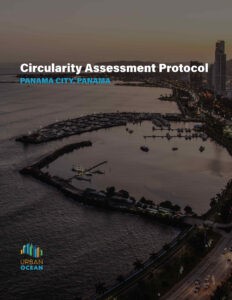
Urban Ocean Circularity Assessment Protocol (CAP) Report | Panama City, Panama
Between October 2020 and March 2021, a team from Centro de Estudios y Acción Social Panameño (CEASPA), with guidance and support from the Circularity Informatics Lab, conducted fieldwork in the city of Panama City, Panama.The CAP was conducted with support from the city’s local government, Resilience Officers, and the larger Urban Ocean team.
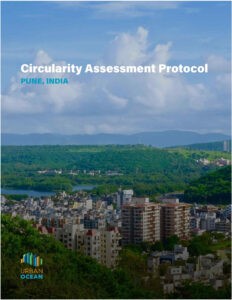
Urban Ocean Circularity Assessment Protocol (CAP) Report | Pune, India
Between October 2020 and March 2021, a team from The Centre for Environment Education (CEE), with guidance and support from the Circularity Informatics Lab, conducted fieldwork in the city of Pune, India. The CAP was conducted with support from the city’s local government, the Chief Resilience Officer (a top-level advisor in the city that is responsible for leading, coordinating, and developing a city’s resilience strategy and policy), and the larger Urban Ocean team.
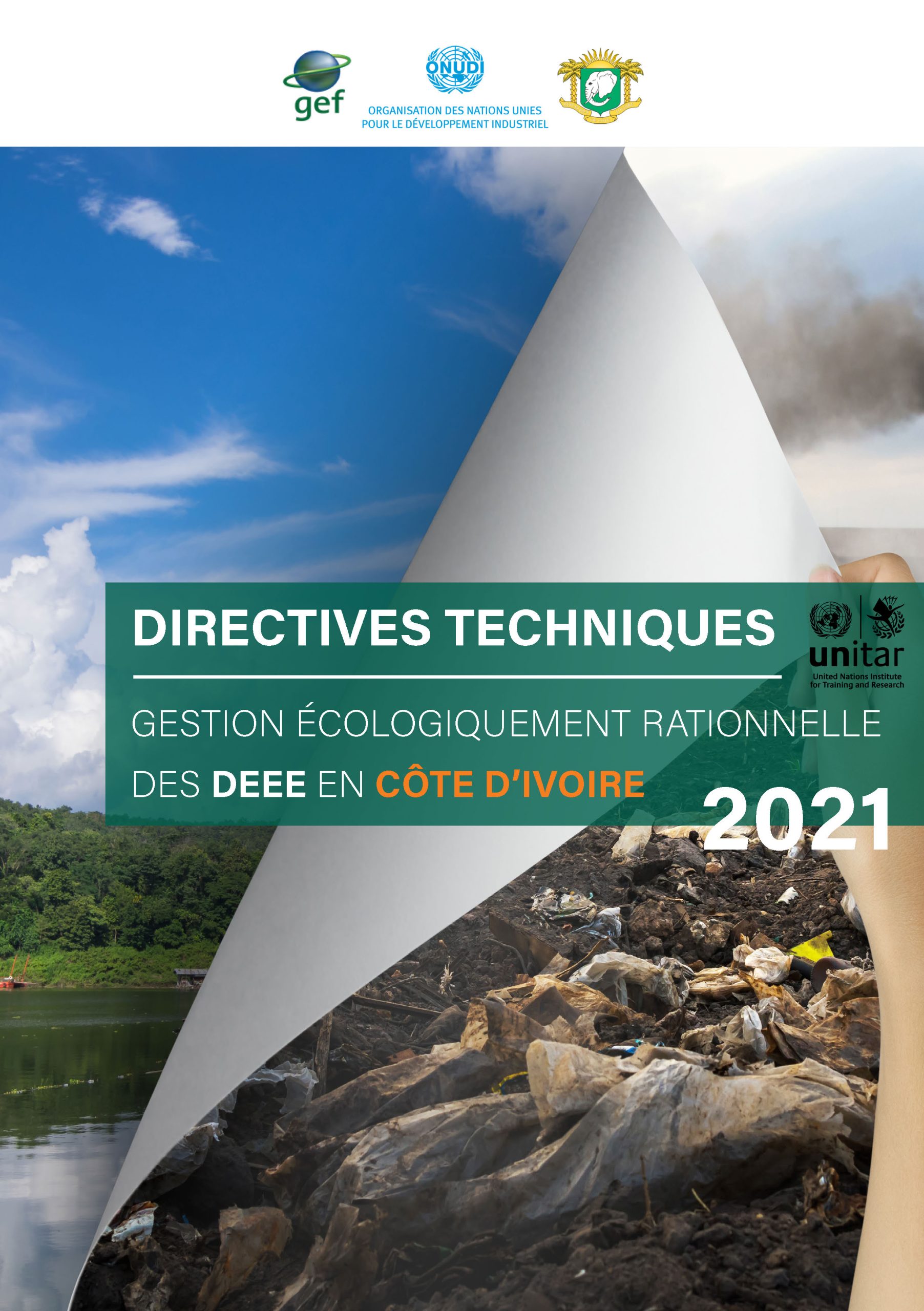
Directives techniques pour la gestion rationnelle des déchets électriques et électroniques
Technical guidelines on sound management of e-waste
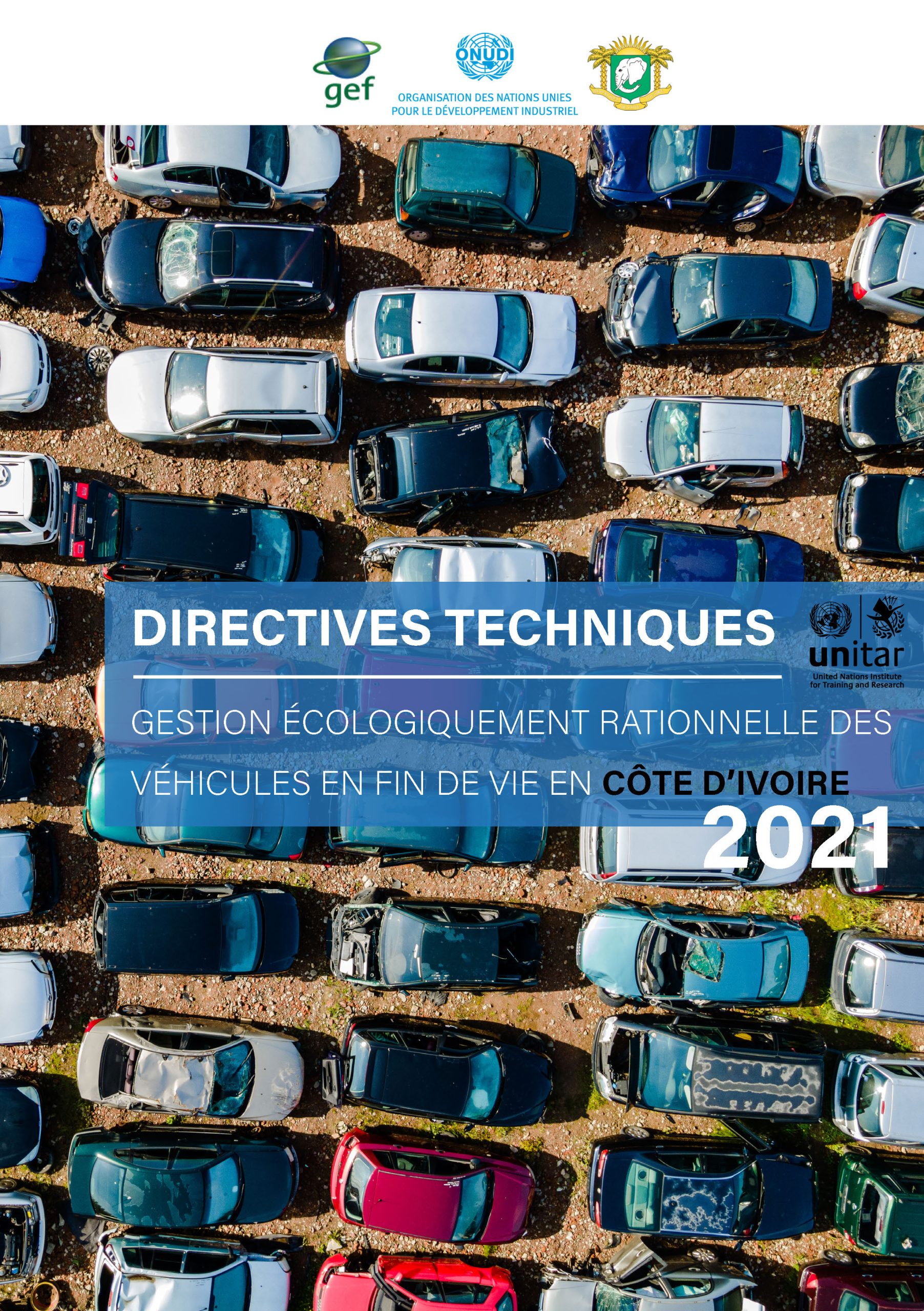
Directives techniques pour la gestion rationnelle des véhicules en fin de vie
Technical guidelines on sound management of end-of-life vehicles
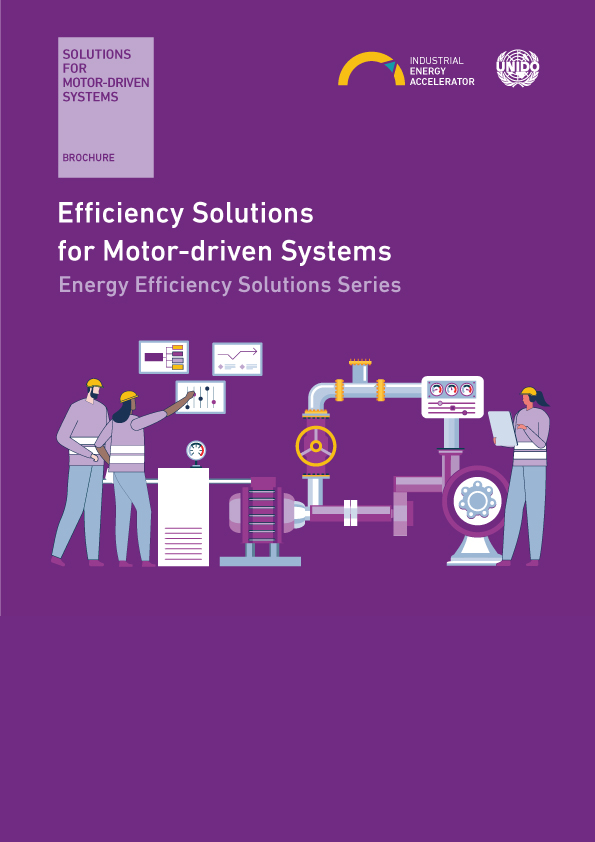
Energy efficiency knowledge kit: Efficiency solution for motor-driven systems
UNIDO’s motor-driven system optimization kit details how industries can take advantage of the vast untapped potential for energy efficiency in electric motor-driven systems. It has been developed using expert insights, case studies and experience gathered over the past decade.
Energy efficiency knowledge kit: Energy Management Systems
UNIDO’s Energy Management System (EnMS) starter kit provides an overview for leadership teams on what an EnMS is and how implementing one can bring benefit to organizations. The kit provides insights from UNIDO’s global experts as well as external links to recommended references, case studies, manuals and technical guides.
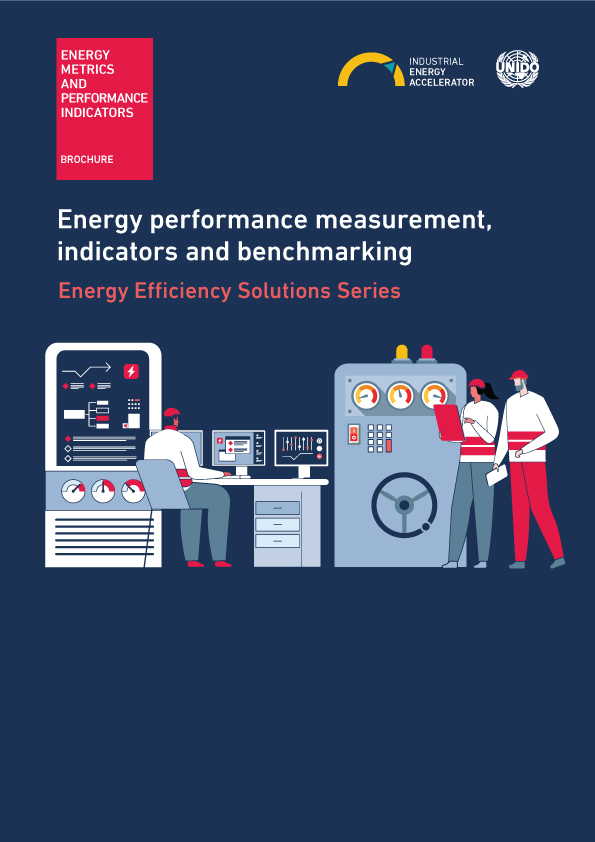
Energy efficiency knowledge kit: Energy Metrics & Performance Indicators
UNIDO’s energy performance measurement, indicators and benchmarking kit details what effective energy performance monitoring is and how it allows identifying new ways to optimize and reap the rewards of energy efficiency over time.
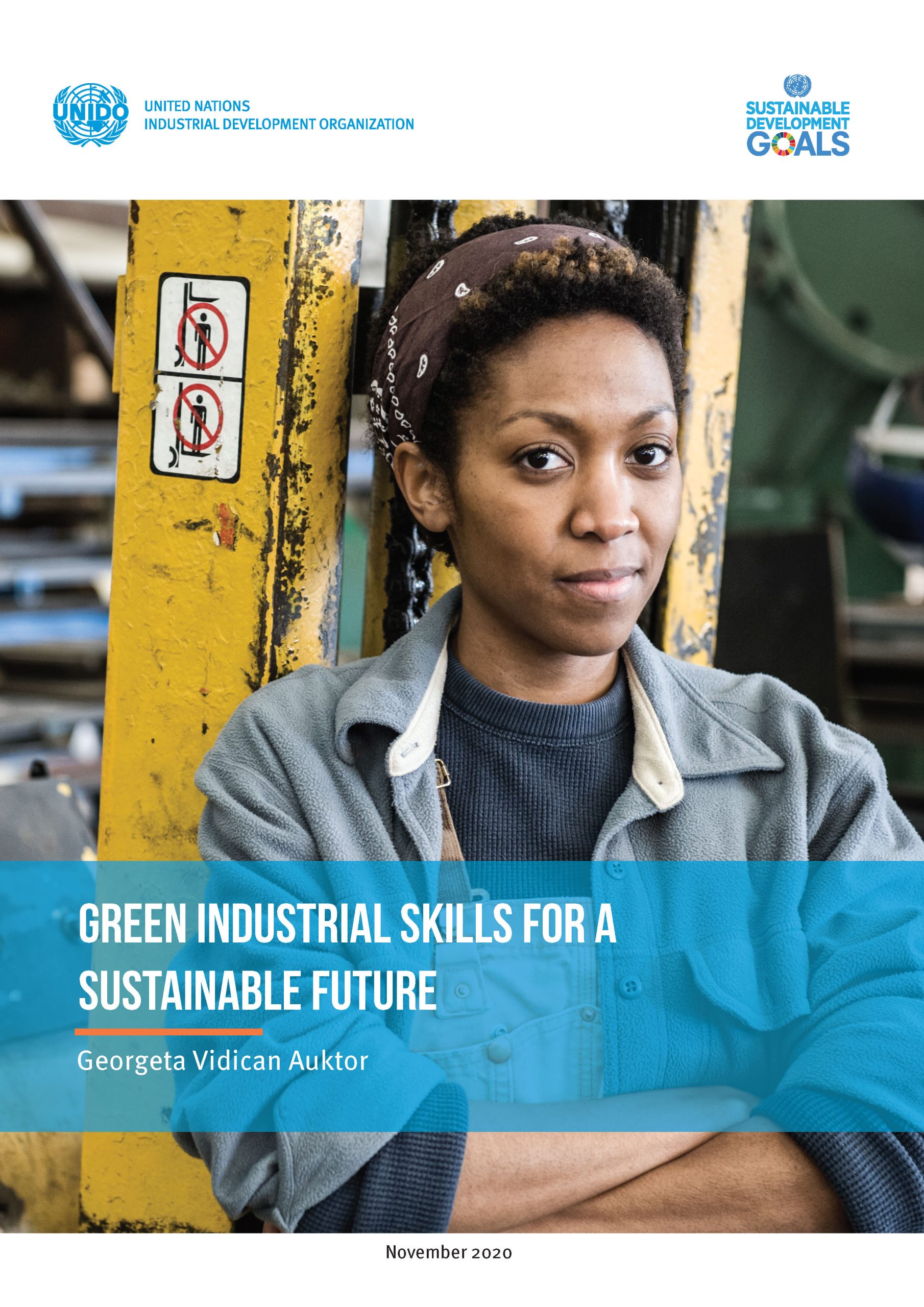
Green Skills for a Sustainable Future
Insights provided by this report seek to guide policy interventions to meet the demand for green skills needed to effectively install, operate, and develop green technologies. Understanding the extent to which the transition to a green economy induces changes in the demand for green skills and, most importantly, which skills these might be, is crucial to inform policy interventions.
Global Survey Analysis: Changing Needs for Skills Development as a Result of COVID-19
The Learning and Knowledge Development Facility (LKDF) of the United Nations Industrial Development Organization (UNIDO) and the European Training Foundation (ETF) launched a global survey to collect information from industries to explore the economic impact of the coronavirus disease (COVID-19) and measures put in place by enterprises.
Creating Opportunities through Vocational Training – Results of a Baseline Survey among Commercial Vehicle Drivers in Addis Ababa, Ethiopia
The present report summarizes the findings of a representative survey among commercial vehicle drivers (CVD) in Ethiopia. The survey was implemented as part of the UNIDO project “Training Institute for Commercial Vehicle Drivers (CVDs) in Ethiopia: A private-public partnership project to support specialized skills development in Ethiopia”
#LKDForum 2020 – Outcome Book
A series of lively debates aimed to answer the question by informing about the market needs for green and digital skills, the public-private coordination or lack thereof, the policymaking processes of designing green policies, and the level of mismatch between offer and supply. The Forum also hosted a design thinking workshop where experts gathered to propose solutions to develop demand-oriented green skills curricula and training and measure the related impacts.
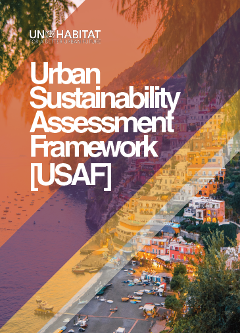
Urban Sustainability Assessment Framework
The Urban Sustainability Assessment Framework (USAF) is designed as a spatial decision support tool to equip city managers, municipal commissioners, chief town planners and urban practitioners to development city-wide and neighorhood level strategies for sustainable and resilient urban planning and management of cities. The framework also functions as a self-monitoring tool to assess impact of project implementation on key sectoral indicators measured against benchmarks and thresholds.
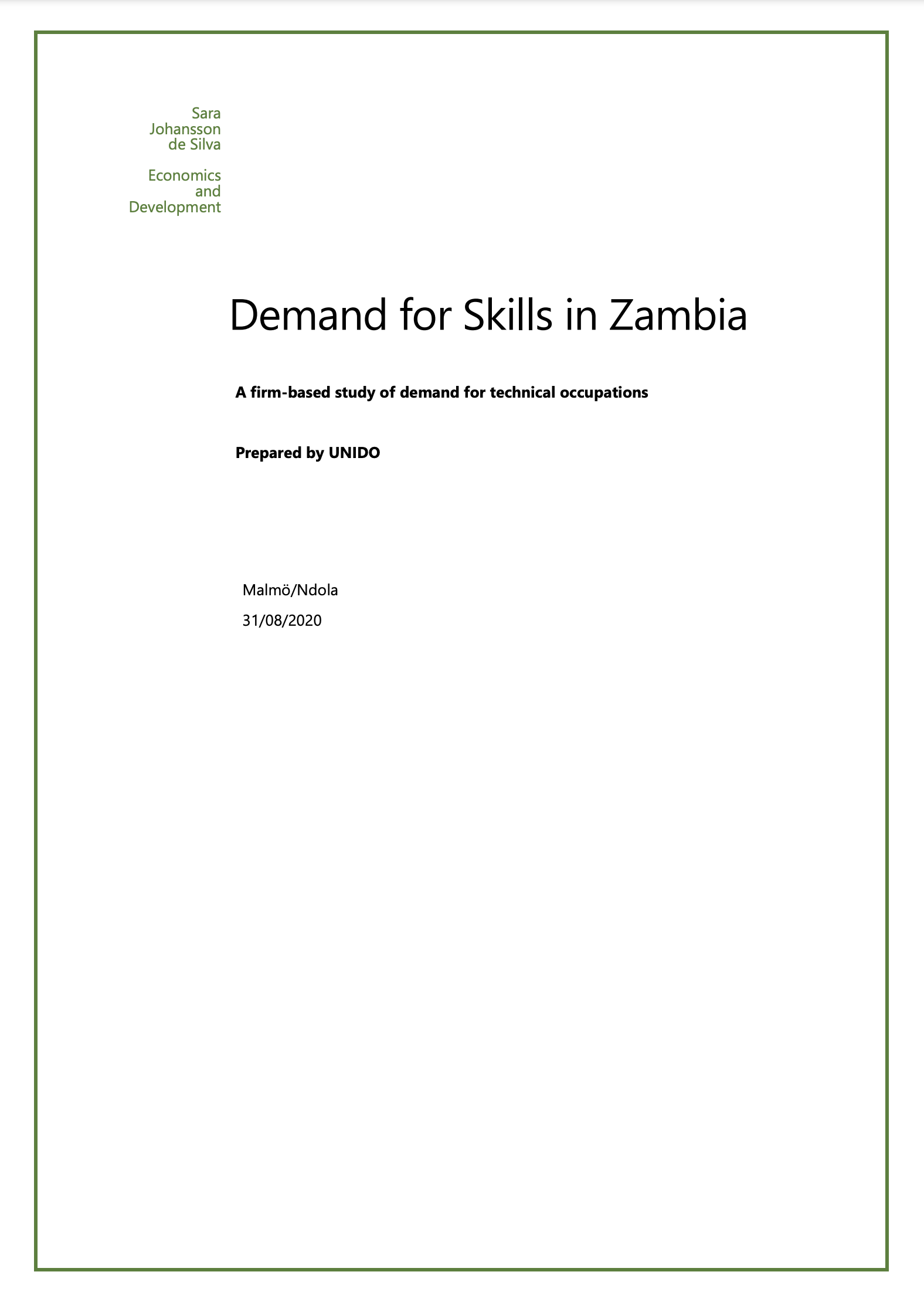
Demand for Skills in Zambia Report 2020
Firm-based of demand for technical occupations to learn about the economic outlook and implications for Zambia’s growth and job creation prospects.
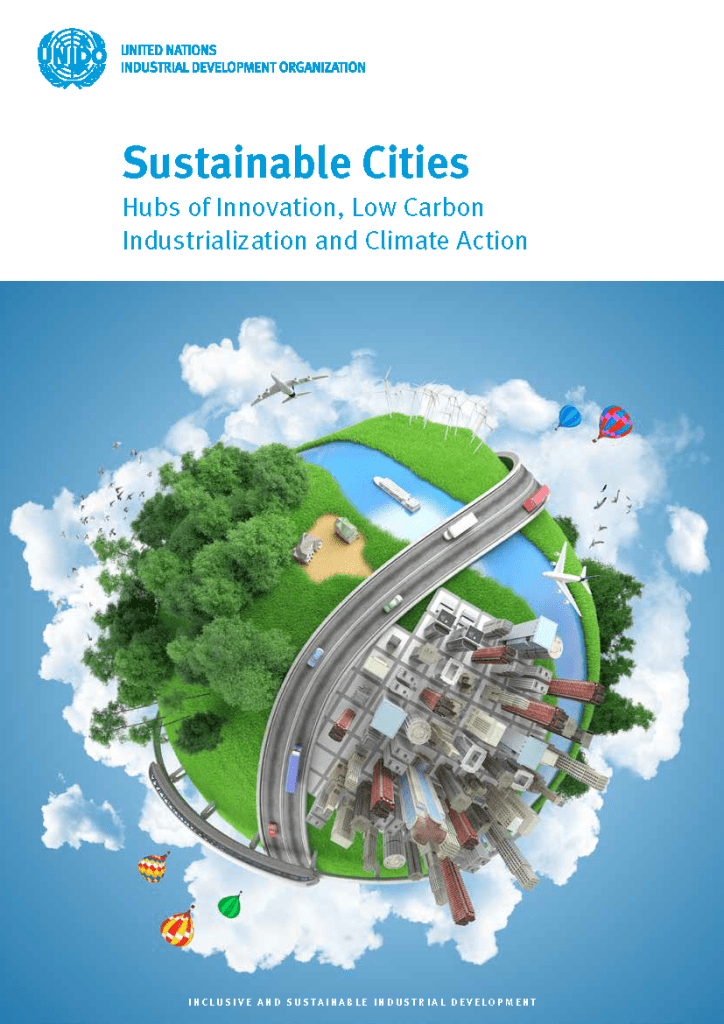
Sustainable Cities
Sustainable Cities Hubs of Innovation, Low Carbon Industrialization and Climate Action
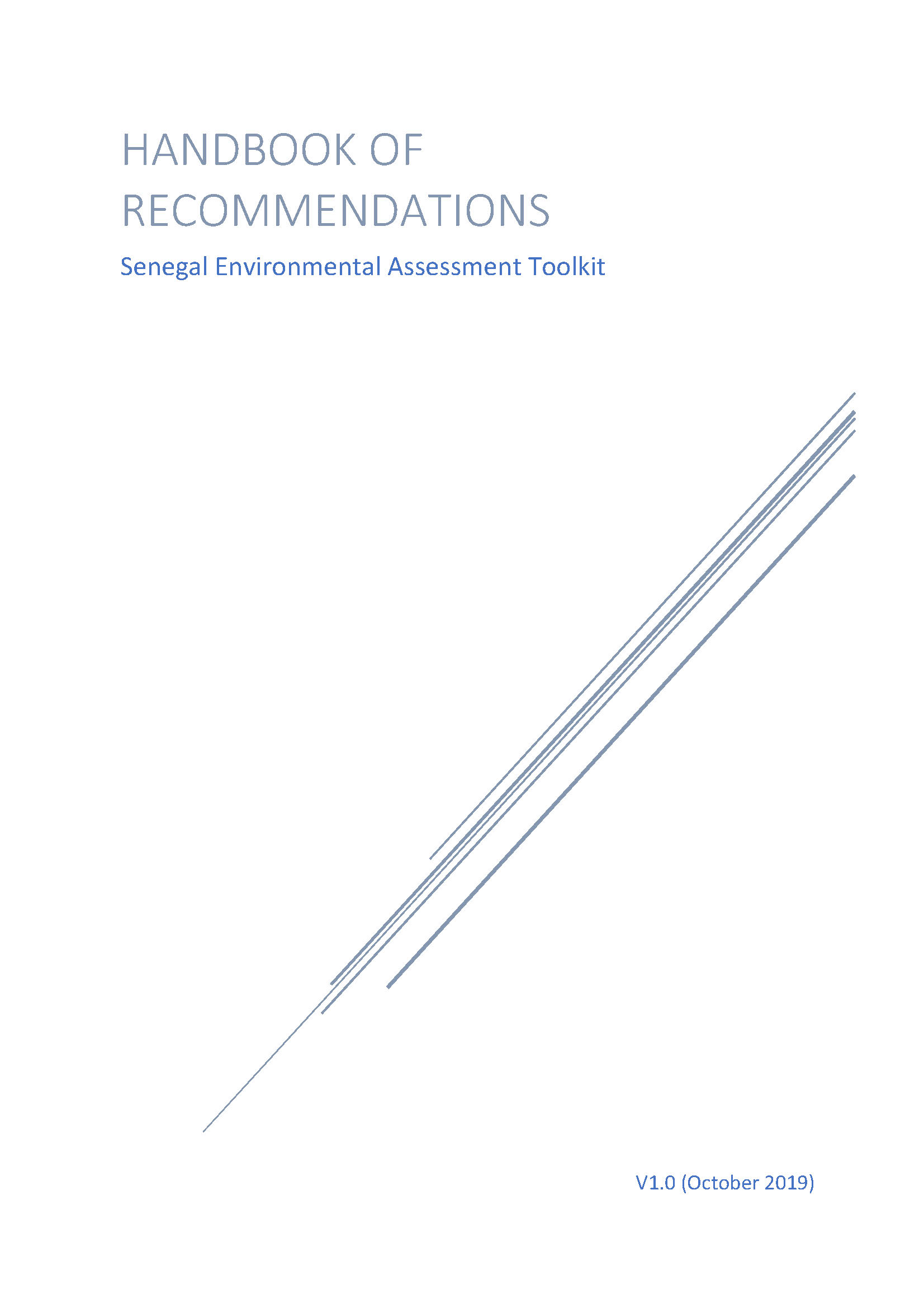
Handbook of recommendations, Senegal Environmental Assessment Toolkit
Handbook of recommendations for industries applying to Diamniadio industrial park, Senegal
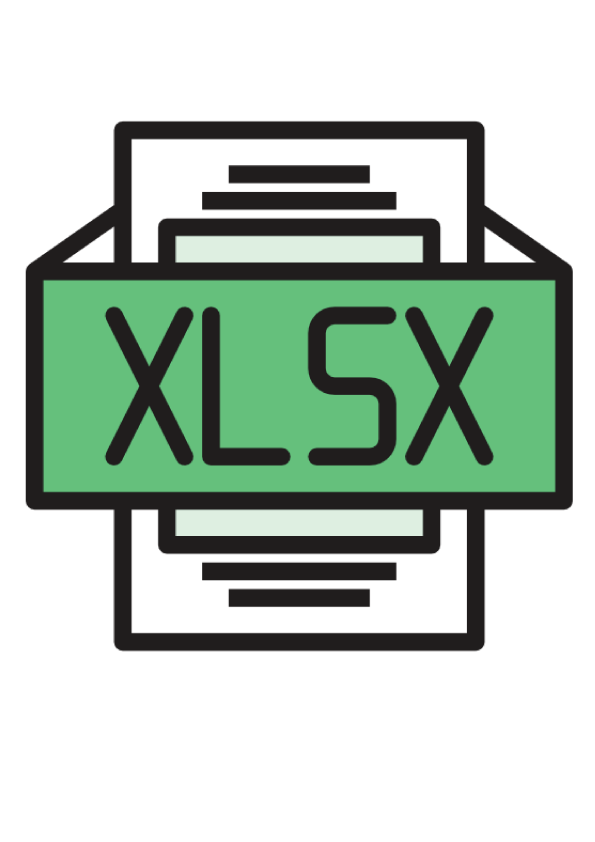
Senegal Environmental Assessment Toolkit
Excel-based toolkit to assess environmental performances of enterprises applying to industrial parks and to support subsequent monitoring
English | French

Tool for Monitoring, Reporting and Verification Framework (MRV) of GHG emissions for the Diamniadio Urban Park, Senegal
Excel-based toolkit for GHG inventory and MRV framework in Diamniadio industrial park
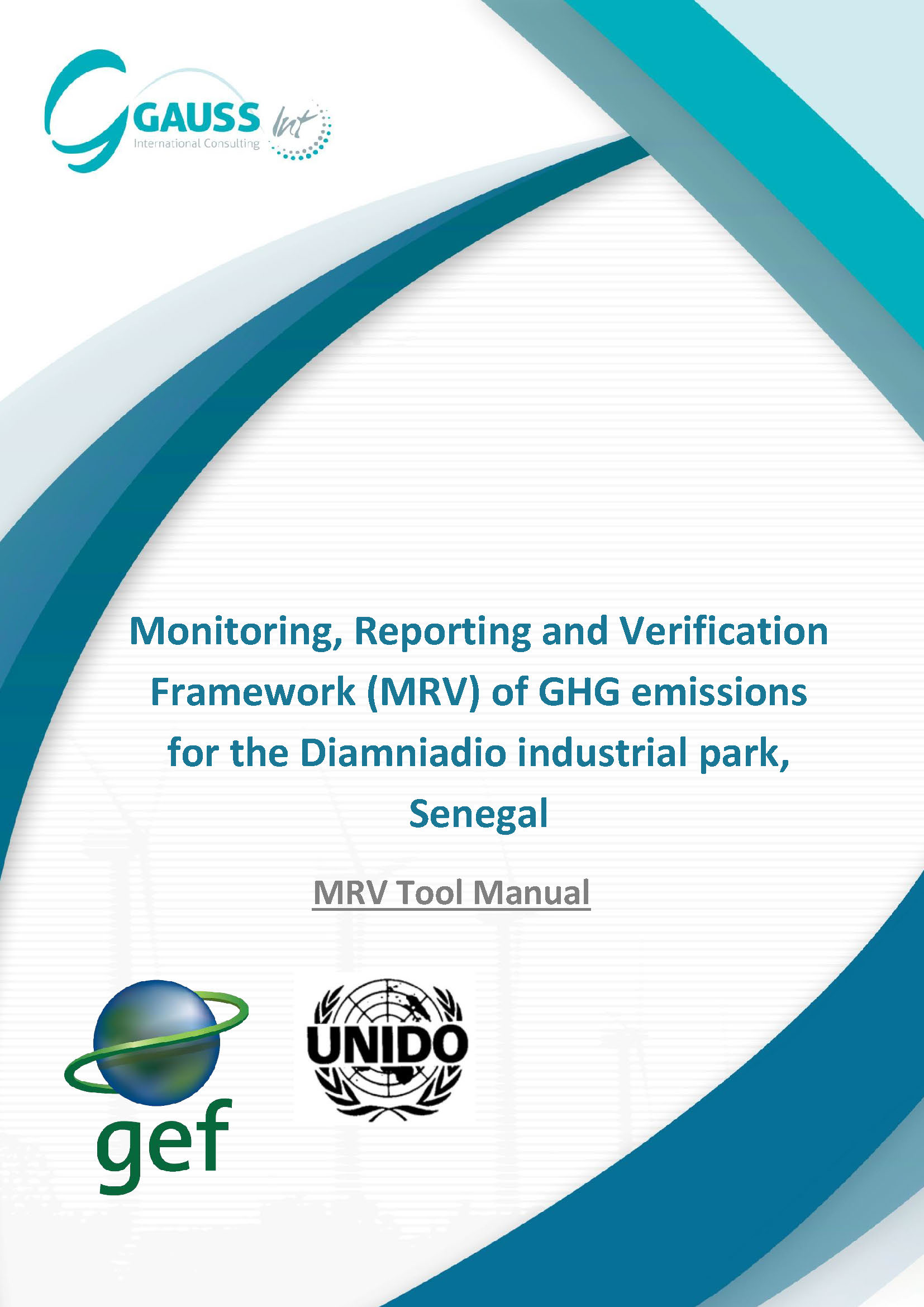
Monitoring, Reporting and Verification Framework (MRV) of GHG emissions for the Diamniadio Urban Park, Senegal
Tool manual of the MRV Framework for Diamniadio industrial park
English
E-LEARNING COURSES
Cities on the Frontline Speaker Series
Cities on the Frontlineis an ongoing speaker series co-organized by the Resilient Cities Network and The World Bank Group’s City Resilience Program from March 2020. The purpose of the series is to share knowledge to help cities respond to the pandemic crisis and to plan towards recovery with resilience. It is a platform for open and honest learning conversations between practitioners in cities and governments, and partners supporting them.


